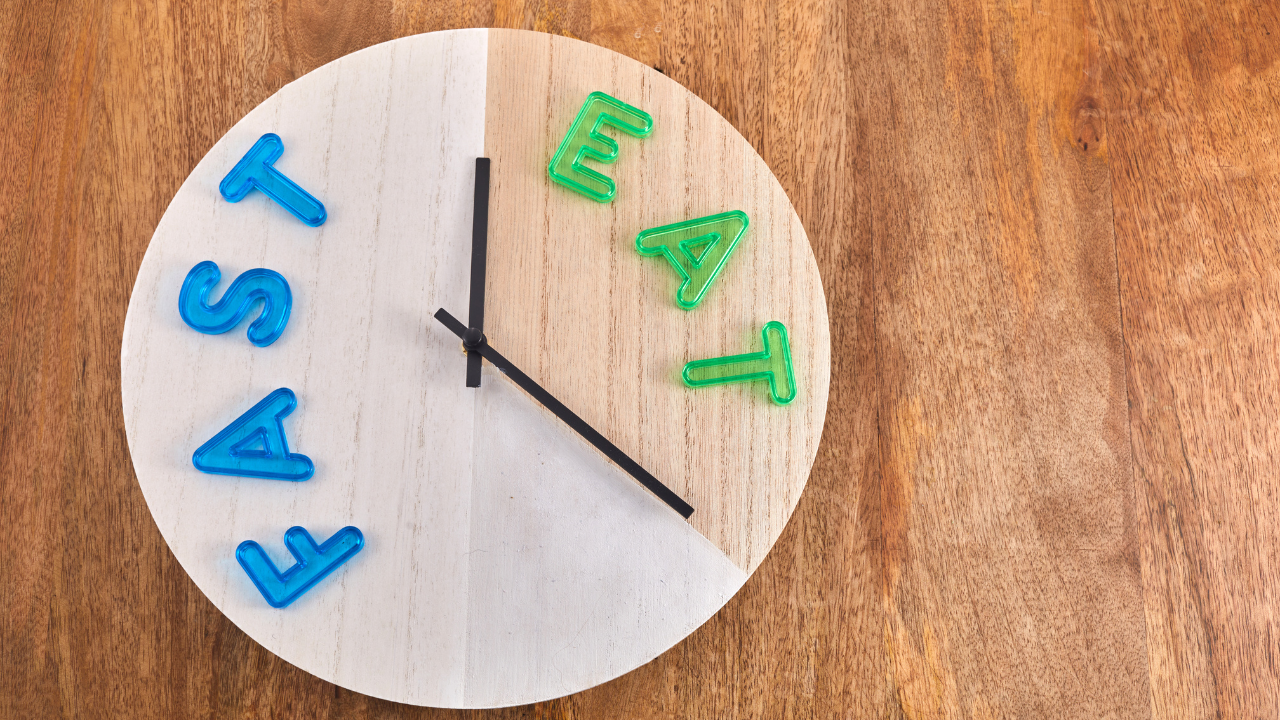Last updated on April 10th, 2024 at 02:42 pm
ARE YOU IN A HURRY?
HERE IS OUR TOP PICK FOR THE BEST TEA FOR FASTINGDISCLOSURE: We get commissions for purchases made through links in this post. As an Amazon Associate I earn from qualifying purchases.
Personal Experience: During my fasting periods, I’ve found that incorporating green tea helps maintain energy levels and stave off cravings, allowing me to stay focused and committed to my fasting goals.
Quick Links
Before we conclude the best tea for fasting, let us cover first what does fasting really means. Fasting has long been recognized as a powerful tool for promoting health, longevity, and even spiritual enlightenment. In recent years, various forms of intermittent fasting have gained popularity for their potential benefits, ranging from weight loss to improved metabolic health.
As an avid tea enthusiast with a keen interest in holistic wellness, I’ve explored the intersection of fasting and tea to uncover the best options for those embarking on a fasting journey.
Intermittent fasting encompasses several different approaches, each with its own unique fasting and feeding windows. The most common types include:
Types of Intermittent fasting
1. Time-Restricted Eating
This method involves restricting your eating window to a set number of hours each day, typically ranging from 4 to 8 hours, with the remainder of the day designated for fasting.
Popular variations include the 16/8 method, where individuals fast for 16 hours and eat within an 8-hour window, and the 18/6 method, which shortens the eating window further.
2. Alternate-Day Fasting
As the name suggests, alternate-day fasting involves alternating between fasting days, where calorie intake is severely restricted or eliminated altogether, and non-fasting days, where food can be consumed ad libitum.
Some variations allow for a limited number of calories on fasting days, while others promote complete abstinence from food.
3. 5:2 Diet
In this approach, individuals consume a regular diet for five days of the week and significantly reduce calorie intake to around 500-600 calories on two non-consecutive fasting days. The remaining five days are unrestricted, allowing for normal eating patterns.
4. Eat-Stop-Eat
Popularized by author Brad Pilon, eat-stop-eat involves fasting for a full 24 hours once or twice a week, with the remaining days dedicated to regular eating. Fasting periods typically begin after dinner one day and end with dinner the following day.
5. Warrior Diet
Inspired by the eating patterns of ancient warriors, this approach involves fasting for the majority of the day and consuming one large meal in the evening. Fasting periods last around 20 hours, with a 4-hour eating window in the evening.
In addition to the list above, there are several other types of intermittent fasting that individuals may choose to follow such as the OMAD diet, and 22/2 intermittent fasting.
Each form of intermittent fasting offers unique benefits and challenges, requiring careful consideration of individual preferences, lifestyle factors, and health goals. Regardless of the method chosen, maintaining hydration and supporting overall well-being during fasting periods are paramount.
As I embark on this exploration of the best teas for fasting, I bring to the table not only my passion for tea but also my commitment to providing insightful and evidence-based recommendations.
Through rigorous research, personal experimentation, and a dedication to uncovering the most effective strategies for fasting success, I aim to empower readers to make informed choices on their journey toward optimal health and wellness.
Can You Drink Tea While Fasting?
Before we delve into the specifics of each tea, let’s address a common question: can you drink tea while fasting? The answer lies in understanding the composition of different teas and their impact on fasting.
While some teas contain calories or stimulants that may disrupt fasting, others, such as herbal infusions and certain varieties of green tea, offer hydration and other health benefits without interfering with fasting goals.
Related article 👉 Can I drink tea with artificial sweetener during intermittent fasting?
8 Best Tea for Fasting
1. Green Tea ►(Editor’s Choice)
With its high antioxidant content and metabolism-boosting properties, green tea emerges as a top contender for fasting. My research indicates that the catechins in green tea not only support fat oxidation but also help curb hunger pangs, making it an ideal companion for intermittent fasting routines. (1)
Personal Experience: During my fasting periods, I’ve found that incorporating green tea helps maintain energy levels and stave off cravings, allowing me to stay focused and committed to my fasting goals.

2. Black Tea
Renowned for its bold flavor and moderate caffeine content, black tea offers a refreshing option for those seeking an energy boost during fasting hours. My tests reveal that black tea can provide a sustained source of energy without spiking blood sugar levels, making it a suitable choice for prolonged fasting periods. (2)
Personal Experience: I’ve often relied on black tea to combat mid-day fatigue during extended fasts, finding its robust flavor and caffeine kick to be both invigorating and satisfying.

3. Oolong Tea
Positioned between green and black teas, oolong tea boasts a unique flavor profile and a host of health benefits. Through my analysis, I’ve observed that oolong tea aids digestion, promotes a healthy metabolism, and may even contribute to weight loss efforts, making it a valuable addition to any fasting regimen. (3)
Personal Experience: Incorporating oolong tea into my fasting routine has not only supported my digestive health but has also provided a welcome sense of satiety, helping me navigate fasting periods with greater ease.

4. Ginger Tea
From soothing hibiscus to invigorating ginger and refreshing peppermint, ginger tea offer a caffeine-free and calorie-free alternative for fasting enthusiasts. Drawing on my own experiences and extensive research, I’ve found that ginger teas not only hydrate the body but also provide a range of health benefits, including improved digestion and reduced nausea. (4)
Personal Experience: Sipping on herbal infusions like ginger tea has been a comforting ritual during fasting, helping alleviate any digestive discomfort and providing a sense of warmth and relaxation.

5. Yerba Mate
Derived from the leaves of the South American holly tree, yerba mate emerges as a natural energy booster that’s well-suited for fasting periods. My exploration of yerba mate reveals that it enhances focus and alertness without the jittery side effects often associated with coffee, making it an excellent choice for sustained energy during fasting. (5)
Personal Experience: Incorporating yerba mate into my fasting routine has provided a steady stream of energy without disrupting my fasting goals, allowing me to remain productive and alert throughout the day.

6. Pu-erh Tea
Renowned for its potential to aid in weight loss and digestion, pu-erh tea offers a unique flavor profile and a range of health benefits. Through meticulous analysis, I’ve found that pu-erh tea supports healthy digestion, reduces bloating and inflammation, and may even contribute to weight management efforts, making it a valuable ally for those on a fasting journey. (6)
Personal Experience: Drinking pu-erh tea during fasting periods has not only supported my digestive health but has also imparted a sense of calm and balance, helping me navigate the challenges of fasting with ease.

7. White Tea
Harvested from the young leaves of the Camellia sinensis plant, white tea boasts a delicate flavor and a wealth of antioxidants. My research indicates that white tea supports overall health and hydration while offering minimal calorie content, making it an ideal choice for fasting enthusiasts looking to stay refreshed and energized. (7)
Personal Experience: Incorporating white tea into my fasting routine has provided a gentle yet refreshing boost, helping me stay hydrated and focused throughout the day.

8. Rooibos Tea
Hailing from the rooibos plant in South Africa, rooibos tea offers a caffeine-free and antioxidant-rich option for fasting enthusiasts. Through careful examination, I’ve discovered that rooibos tea promotes hydration, soothes the stomach, and imparts a sense of calm, making it an excellent choice for fasting periods. (8)
Personal Experience: Enjoying a cup of rooibos tea during fasting has become a cherished ritual, offering both physical and mental nourishment to support my fasting goals.

Additional Tea Options for Fasting
- 👉 Peppermint Tea: Soothes digestive discomforts with refreshing mint flavor, aiding digestion and calming the stomach during fasting.
- 👉 Chamomile Tea: Promotes relaxation and soothes nerves, helping to ease stress and support a calm fasting journey.
- 👉 Cinnamon Tea: Balances blood sugar levels and adds a warm, aromatic touch to fasting routines.
- 👉 Lemon Balm Tea: Relaxes the body and mind, offering a refreshing citrusy flavor for a soothing fasting experience.
- 👉 Hibiscus Tea: Hydrates and provides antioxidant support with its tangy flavor, a refreshing choice during fasting.
- 👉 Moringa Tea: Packed with nutrients, supports overall health and wellness, providing a nourishing option for fasting.
Conclusion: What is the Best Tea for Fasting?
In conclusion, the journey through the world of fasting and tea has been both enlightening and rewarding. Through my expertise and personal experiences, I’ve identified the eight best teas for fasting, each offering a unique blend of flavor and health benefits to support your fasting goals.
From the metabolism-boosting properties of green tea to the soothing effects of herbal infusions, there’s a tea option to suit every fasting window and preference. By incorporating these teas into your fasting routine, you can stay hydrated, energized, and focused while reaping the holistic benefits that tea has to offer.
I wholeheartedly recommend exploring the diverse world of fasting teas and discovering the perfect blend to support your fasting journey. With the right tea by your side, you can embark on your fasting routine with confidence, knowing that you’re nourishing your body and mind in the most beneficial way possible.
FAQs
What is the best tea to drink when fasting?
The best tea for fasting is undoubtedly green tea. Packed with antioxidants, it aids metabolism and reduces hunger pangs, aligning perfectly with intermittent fasting objectives. Its health benefits and zero-calorie nature make it an ideal companion during fasting periods, promoting hydration and supporting overall well-being.
What should I drink while fasting?
While fasting, herbal teas such as ginger or peppermint are excellent choices. These caffeine-free options not only keep you hydrated but also offer soothing effects on the stomach, aiding digestion without disrupting your fasting goals.
What kind of green tea can I drink while fasting?
When fasting, any unsweetened green tea is recommended. Its plethora of health benefits, including metabolism support and hunger suppression, make it an ideal choice to sip on during fasting periods, ensuring you stay hydrated and energized without breaking your fast.
Will Earl GREY tea break a fast?
Earl Grey tea may not be ideal during fasting due to its caffeine content and potential calorie intake, which could disrupt the fasting state. To maintain the integrity of your fast, it’s advisable to stick to zero-calorie options like herbal teas or unsweetened green tea, ensuring you reap the full benefits of fasting without interruptions.
What to Read Next?
Related Articles
Ali Webster is a seasoned researcher, communicator, and Registered Dietitian with a diverse background encompassing government, nonprofits, academia, and health care. The core belief is that science should be made accessible, understandable, and relevant to all individuals, driving the motivation behind their work. Proficient in conducting and interpreting research to shape nutrition policy decisions, the individual also excels in nutrition and health communication, consumer research survey development and implementation, and clinical nutrition. Holding a Doctorate of Philosophy with a focus on Nutrition and Epidemiology from the University of Minnesota, their dietetic internship emphasized medical nutrition therapy.












